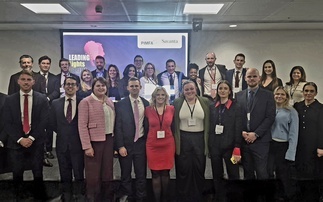Advisers have overcome the biggest hurdles they were confronted with as a result of the Retail Distribution Review (RDR), according to a poll, with the number reporting they are still in "survival mode" having halved.
A markedly-smaller number than last year - 19%, down from 41% - said they were focusing simply on ‘ensuring their firm is making enough income via fees to replace commission income streams', according to research by technology company Dunstan Thomas.
The firm's managing director Natanje Holt said: "It's clear that the worst effects of RDR have been felt and, although many predict further falls in adviser numbers, those that are left look set to see rising demands for their services."
The findings, from a poll of over 100 advisers, suggest most have learnt to operate successfully in the new, more transparent environment, which came into force on 1 January 2013.
Adapted but unhappy
However, client agreed remuneration, seen by the regulator as integral to improving transparency, was judged to be the least desirable by-product of the RDR by nearly a quarter of the sample.
Topping the list was the ‘excessive increase in terms and conditions requirements, reporting and other regulatory red tape', which was cited by 41% of advisers.
The rise of direct to consumer (D2C) platforms was the least loved impact of the RDR by over a fifth of advisers.
While the results suggest the RDR has been endured, rather than welcomed, by advisers, one in five took the opportunity to contact the top tiers of their customer base in the last year to offer reviews and service improvements.
The rule change spurred around 15% to become involved in merger, acquisition or some other major structural business change event.
Firms still regard client retention as their top priority, with 39% citing this as most important, up from 36% this time last year. Client acquisition was the top concern for 22%, up from 19%.
Regulatory compliance was cited by the majority - 59% - as the single biggest risk to their business.
A third considered not doing enough fee-paying business as the biggest threat.











